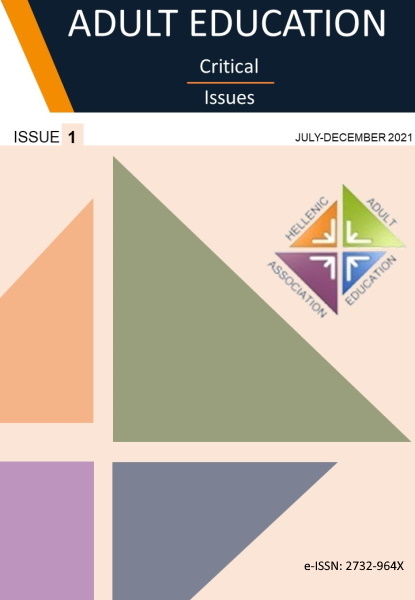Active Labor market policies and Lifelong Learning in Greece

Abstract
The main goal of the present paper is to discuss how and under what circumstances, active labor market policies and adult education could assist staff to cope with stress and enhance skills and abilities to achieve employment. The high numbers of unemployed in Greece together with the long-term ineffective austerity measures and policies imposed in the country and the reduction of the social welfare state, created many multiple and complex issues that deteriorated after the pandemic. The present paper suggests that specific active labor market policies must be employed together with lifelong learning policies and programmes to ensure future developments. Greece, more than any other modern European country, was faced for several years with extreme austerity measures that affected the social, economic, and personal level. The working population and especially young people had to cope with prolonged unemployment, limited options for reentering the job market and the associated stress that follows exposure to adverse experiences. The phenomena of brain drain and brain waste, are well documented in Greek research and literature. Covid-19 pandemic was another stroke in an already unbalance economy. Lifelong learning programmes, that are meant to assist not only the working but also the general population to increase social and other skills, as a way of ensuring access to the labour market, are addressed to only a small portion of the population and usually to those who need them the least. The current paper presents the challenges that Active labor market and Lifelong policies in Greece must face in the process of coping with prolonged unemployment, brain drain and brain waste.
Article Details
- How to Cite
-
Tsiboukli, A., & Efstratoglou, A. (2022). Active Labor market policies and Lifelong Learning in Greece . Adult Education Critical Issues, 2(1), 33–44. https://doi.org/10.12681/aeci.30603
- Section
- Articles

This work is licensed under a Creative Commons Attribution 4.0 International License.
Authors who publish with this journal agree to the following terms:
- Authors retain copyright and grant the journal right of first publication with the work simultaneously licensed under a Creative Commons Attribution License that allows others to share the work with an acknowledgement of the work's authorship and initial publication in this journal.
- Authors are able to enter into separate, additional contractual arrangements for the non-exclusive distribution of the journal's published version of the work (e.g., post it to an institutional repository or publish it in a book), with an acknowledgement of its initial publication in this journal.
- Authors are permitted and encouraged to post their work online (e.g., in institutional repositories or on their website) prior to and during the submission process, as it can lead to productive exchanges, as well as earlier and greater citation of published work (See The Effect of Open Access).






